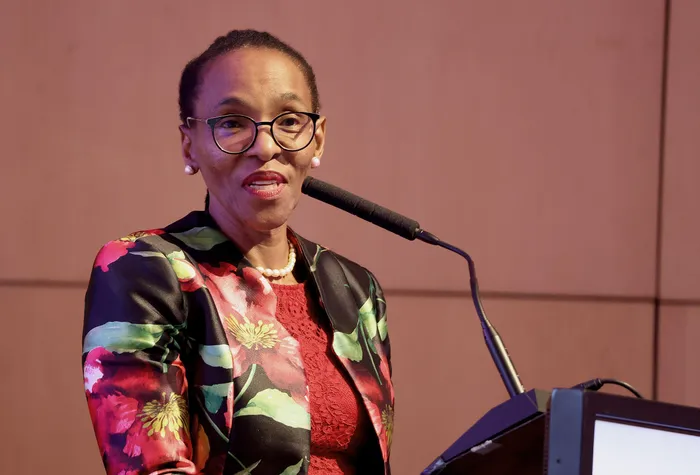A year of challenges and triumphs for Chief Justice Mandisa Maya

Chief Justice, Mandisa Maya.
Image: GCIS
A year ago, Justice Mandisa Maya made history as South Africa’s first female top judge, and overall, she has scored big wins, but the role’s heavy demands risk pulling her away from the court. The next nine years will be about finding balance.
This is according to Judges Matter, a transparency project that believes in the importance of judges.
As Justice Maya stepped into her role as Chief Justice on September 1 last year, Judges Matter took stock of what she had achieved during her first year in office.
The group noted that Justice Maya has recently introduced a revised sexual harassment policy for the judiciary and helped resolve a long-standing impasse over judicial independence.
However, progress has been slow in other areas, such as implementing the 2023 judges’ conference resolutions on reforming the judicial misconduct system and restoring the credibility of the Judicial Service Commission (JSC), it said.
According to Judges Matter, concerns have also been raised that the demands of her role are detracting from her primary judicial duties.
Justice Maya’s May 2024 interview for Chief Justice was viewed as a formality, but it provided insight into her vision for the judiciary.
She has long advocated for independent control over court operations, administration, and budgets, as well as a unified judiciary comprising judges and magistrates, it noted.
Judges Matter remarked that after taking office a year ago, Justice Maya engaged with government officials, including Justice Minister Mamoloko Kubayi and Finance Minister Enoch Godongwana. Under her leadership, the Heads of Court forum has met more frequently than ever before.
These meetings culminated in President Cyril Ramaphosa’s announcement of the government’s intention to grant the judiciary full institutional independence, potentially marking a turning point for South Africa’s courts. This comes at a time when the courts face severe underfunding, staff shortages, and overwhelming caseloads that erode public trust, Judges Matter said.
However, it added, questions remain regarding the practicalities of judicial control over staff and budgets, and how accountability to Parliament will be managed.
Shortly after taking office, Justice Maya began revising the anti-sexual harassment policy for the judiciary, consulting various stakeholders.
Last month, she announced the policy’s formal implementation, emphasising its role in creating a safer and more gender-conscious judiciary.
Judges Matter explained that the policy establishes a zero-tolerance approach to sexual harassment and bullying, aiming to dismantle the culture of silence and lack of accountability. An independent “gender desk” will provide support to survivors, helping to prevent retraumatisation during reporting.
The policy also offers multiple pathways for victims to address complaints and mandates training for judicial officers on workplace power dynamics and professional conduct.
As the first year of Justice Maya’s tenure is marked, her successes in judicial independence and the new sexual harassment policy are noteworthy. However, the complexities of her role have pulled her away from her primary responsibilities as a justice of the apex court, Judges Matter noted.
“She has presided over relatively few of the Concourt’s hearings and has yet to author a single judgment as Chief Justice.”
The group added that as she settles into her role over the next nine years, Justice Maya must balance her duties to the court and her leadership of an independent arm of the state. The future of South Africa’s judiciary and public confidence in it depend on this balance, they added.
Cape Times
Related Topics: